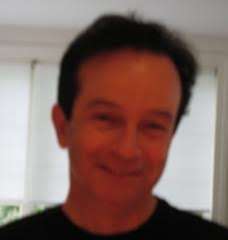Very few composers wrote operas as dependent on the cadence and flow of spoken language as Jules Massenet. Once the text for a libretto was set, he would memorize it, then constantly repeat it aloud – often while on long walks – until the fluidity and rhythm of the phrases revealed the appropriate setting. For Werther, his most conversational opera, this method creates an intimacy and focus approaching that of the letters of Goethe’s epistolary novel. Fortunately for Opera Ballet Vlaanderen, their youthful cast of fresh-voiced singers was made up of singers with native speaker fluency or, as in the case of Enea Scala, ones whose attention to proper pronunciation and the meaning of the words sung yielded similar results. Taped at its Ghent opera house, this concert performance marked role debuts for both Scala and lyric mezzo Rihab Chaieb as Werther and Charlotte. In fact, everyone but Nabil Suliman (Johann) was singing their roles for the first time. The cast's enthusiasm and commitment, seconded by the orchestra, raised this performance to an uncommon level of intensity.
The timbre of Scala’s voice has darkened. The metallic sheen in the upper register which marked his bel canto singing is muffled, but his decision to go for full-throated passion certainly reflected Werther’s ardor intensifying to the point of obsession the more impossible a relationship with Charlotte became. And Werther’s many apostrophes surged, like “Rêve! Extase! Bonheur!”, to thrilling climaxes. However, it took some time for his mezza voce to snap into focus and some subtleties and nuances were sacrificed. Scala sang score in hand, the only cast member to do so. Though it allowed him to let loose with confidence vocally, it inhibited him dramatically. “Pourquoi me réveiller” marked the only time he closed his score and proved the point by being the most relaxed and completely involved moment of his performance. Still, a tantalizing first attempt at a role which he will grow into as he performs it more, continues to follow his bel canto instincts, and maybe listens to Georges Thill once or twice.
The opera’s Charlotte is the brainchild of Blau, Millie and Hartmann, not Goethe. They created such a central and compelling character that she could vie with Werther for the title of the opera. As it is, its second half belongs to her, with Act 3 in particular requiring a tour de force of singing and acting, which Chaieb delivered. Her warm, amber mezzo lent an unaccustomed seductive quality to her Charlotte and credibility to Werther’s attraction. The evenness of the voice and the smoothness of its production did not stand in the way of her complete immersion in the torrent of emotions which mark the final two acts. Worthy of note was her ability to blend her timbre with that of the plangent alto saxophone in Act 3. Her feel for the role will only sharpen and deepen once she brings it to the stage. It could well become her calling card.
If there were a sequel to the opera, it would likely find Sophie in therapy, wounded as she is thanks to the self-absorption of the adults around her. Elisa Soster met the difficult challenge of an adult portraying a child who intuits more than many far older, shading the natural brightness of her voice to great effect. Ivan Thirion was able to depict Alfred’s hardening as he realizes his wife loves another simply by draining his baritone of warmth and color. Justin Hopkins’s mellow bass-baritone fit the affable Bailli to a tee. Familiar from his many appearances with the Boston Pops, Hopkins is a singer to watch as his career progresses. As is often the case, the minor roles of Brühlmann and Kätchen were cut, leaving Schmidt and Johann (Daniel Amaldos and Nabil Suliman) to ably shoulder the comic relief.
Massenet doesn’t make things easy for his singers. Often the orchestra is doing something entirely different. Thanks to Giedrė Šlekytė’s attentive direction, all the debutantes were able to navigate the score’s twists and turns. She maintained an energized sense of urgency wed to an elastic pulse with the swells and surges of emotions rising naturally from it. The orchestra responded to her direction with a velvety cushion of sound, refracting the score’s many colors and sustaining them no matter how dramatic the climax. Though the entire orchestra gave its all, the four cellos, so vital in this score’s palette, were exceptional.
This performance was reviewed from the Opera Ballet Vlaanderen live video stream




